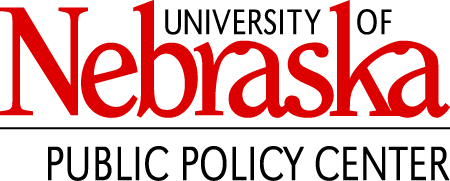Great Plains Disaster Behavioral Health Conference
The Great Plains Disaster Behavioral Health Conference is for psychiatrists, psychologists, social workers, mental health care providers, public health officials, nurses, clergy, emergency managers, and first responders to learn and recognize how to prepare and respond to the psychological effects of disaster and mass casualties.
2017 Conference
Back to Basics
This year’s conference presents the opportunity to take part in two trainings, which are appropriate for both licensed behavioral health professionals and for paraprofessional disaster behavioral health responders.
The University of Nebraska Public Policy Center (NUPPC) is approved by the American Psychological Association to sponsor continuing education for psychologists. The NUPPC maintains responsibility for this program and its content. This conference has been approved for 6.25 CEs for each day of the conference (or 12.5 CEs for both days).
July 27 & July 28, 2017
Embassy Suites Omaha
Downtown Omaha
555 South 10th Street
Omaha, Nebraska 68102
Day One – July 27, 2017 – Sold Out
Nebraska Psychological First Aid Training (PFA)
The purpose of the Nebraska psychological first aid program is to equip natural helpers to provide psychological support to survivors of critical events (e.g. disasters, conflicts, accidents, etc.). It is segmented into seven modules, each addressing critical skills that can make an immediate and lasting impact on a person’s psychological health following a crisis: 1) Psychological Support; 2) Stress and Coping; 3) Supportive Communication; 4) Promoting Community Self-Help; 5) Populations with Functional Needs; 6) Helping the Helper; and 7) De-escalation.
Day Two – July 28, 2017
Skills for Psychological Recovery (SPR)
This presentation will provide an overview of the NCTSN/NCPTSD Skills for Psychological Recovery (SPR) intervention, which is a modulized approach to working with disaster survivors in the recovery phase. SPR consists of six modules with handouts and work sheets: 1) Information Gathering; 2) Enhancing Problem-Solving Skills; 3) Promoting Positive Activities; 4) Managing Reactions; 5) Promoting Helpful Thinking; and 6) Rebuilding Healthy Connections. Participants will practice SPR and how to adapt this intervention for diverse populations and settings.
It is highly recommended that participants have been trained in Psychological First Aid (any current model) prior to taking SPR Training.
Objectives
1
Become familiar with skills to serve survivors of disaster and/or emergency events.
2
Differentiate approaches to serve survivors at different phases following a disaster.
3
Gain experience applying appropriate interventions through practice exercises.
Conference Speaker

Melissa Brymer, Ph.D., Psy.D.
Director of Terrorism and Disaster Programs of the UCLA/Duke University National Center for Child Traumatic Stress and it’s National Child Traumatic Stress Network (NCTSN)
Conference Materials

Brochure
Contacts
University of Nebraska Public Policy Center
Disclaimer
This website is part of a coordinated effort on behalf of the U.S. Federal Government and the Nebraska Department of Health and Human Services Division of Public Health, Division of Behavioral Health, and the University of Nebraska Public Policy Center. Funding was made possible [in part] by U3REP190555 from the Office of the Assistant Secretary for Preparedness and Response (ASPR). The views expressed in written materials or publications do not necessarily reflect the official policies of the U.S. Department of Health and Human Services or the Nebraska Department of Health and Human Services, Division of Public Health; nor does mention of trade names, commercial practices, or organizations imply endorsement by the U.S. Government or the State of Nebraska.





